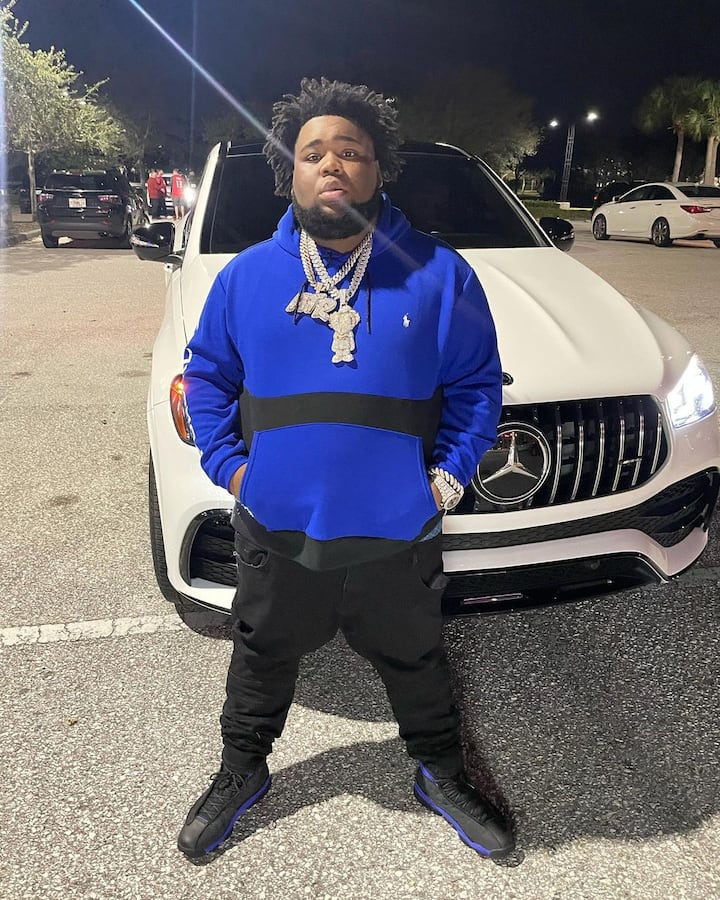Are we witnessing a seismic shift in the cultural landscape, or simply a series of calculated moves? **The presence of prominent figures from the hip-hop community at events associated with Donald Trump has ignited a firestorm of debate, forcing a reevaluation of alliances and allegiances within the Black community and beyond.**
The convergence of these seemingly disparate worlds – the glitz and glamour of the music industry and the often-polarized arena of politics – has become increasingly apparent, particularly during Black History Month celebrations hosted at the White House. These gatherings, intended to honor the contributions of Black Americans, have become stages for complex narratives, with figures like Rod Wave, Kodak Black, and Lil Boosie finding themselves at the center of both admiration and condemnation. The optics are undeniable: high-profile entertainers aligning themselves with a political figure known for courting controversy, creating an unavoidable collision of celebrity, politics, and cultural identity. This has, unsurprisingly, sparked heated discussions and challenged long-held assumptions about the intersection of art, activism, and political affiliation.
Here's a deeper look at some of the key figures involved:
| Subject | Details |
|---|---|
| Name | Rodarius Marcell Green, known professionally as Rod Wave |
| Born | August 27, 1998 (age 25 years), St. Petersburg, Florida, U.S. |
| Occupation | Rapper, singer, songwriter |
| Genre | Hip hop, R&B |
| Notable Albums | Pray 4 Love (2019), SoulFly (2021), Beautiful Mind (2022) |
| Political Involvement | Attended and performed at events associated with Donald Trump. Publicly expressed support. |
| Controversies | Criticized for aligning with Trump, given Trump's controversial history with race relations. |
| Personal Life | Maintains a relatively private personal life. |
| Reference | AllMusic.com |
The reaction to these associations has been multifaceted and, at times, deeply personal. On platforms like X (formerly Twitter), the online community, particularly Black Twitter, has exploded with commentary. The sentiment ranges from outright disapproval and accusations of selling out, to more nuanced perspectives acknowledging the artists' right to express their political views. Critics have pointed to Trump's divisive rhetoric and policies, raising concerns about the potential impact on the Black community. The performances themselves, held at events like Black History Month celebrations, have been perceived by some as tone-deaf, undermining the intended purpose of the gatherings.
It is important to understand that this is not a monolithic response. Many factors influence individual perspectives. Some see these endorsements as strategic moves, aimed at gaining access and influence. Others view it as a genuine reflection of the artists' political beliefs, emphasizing the importance of diverse viewpoints within the Black community. Some may argue that the artists are simply exercising their right to free speech, while others contend that their platforms come with a responsibility to their audience and to the broader cultural conversation. The complexities of the issue are readily apparent.
The presence of these artists at Trump-related events has also spurred an examination of the motivations behind their political affiliations. It's a complex interplay of factors, including: a perceived alignment with Trump's economic policies; a belief in his ability to enact criminal justice reform; or, perhaps, a more general desire to break away from what they see as the traditional political establishment. Whatever the reasons, the public is now acutely aware of the artists' political leanings.
The scrutiny extends beyond individual performers. The very nature of the events they're attending – Black History Month celebrations hosted by a figure like Donald Trump – adds another layer of complexity. These events, by their very nature, are intended to be a celebration of Black achievement and resilience. The inclusion of figures associated with Trump has, for many, created a dissonance, a feeling that the message of unity and empowerment is somehow undermined by the association.
This raises fundamental questions about the role of the artist, the intersection of art and politics, and the responsibility of public figures in a hyper-polarized society. Is it the artist's role to be an activist, a provocateur, or simply an entertainer? Does an artist have a duty to align their actions with their audience's values? How should the Black community grapple with the complexities of political alliances, particularly when those alliances involve controversial figures?
The implications of these events reach beyond the world of music. The presence of these artists has, inadvertently, placed a spotlight on the broader issue of political engagement within the Black community. For many, the artists' choices are seen as a bellwether, a reflection of the community's evolving relationship with the political landscape. The debates on social media platforms are indicative of a community grappling with its identity, its values, and its place in American society.
The rise of social media has added fuel to the fire, amplifying both criticism and defense. These platforms have become battlegrounds where opinions are formed, debated, and amplified, often in real-time. It has also increased the pressure on artists to respond to criticism and defend their choices. The rapid-fire nature of these exchanges often leaves little room for nuance and understanding, but the dialogue – however fraught – remains vital.
In the grand scheme of things, the participation of Rod Wave, Kodak Black, and Lil Boosie in these events is a symptom of a larger phenomenon. We are witnessing a shift in how culture and politics intersect, with celebrities increasingly willing to engage with the political process, regardless of the potential consequences. This trend will likely continue. As political figures seek to connect with broader audiences and artists embrace the power of their platforms, we can expect more unexpected alliances and more intense public debate. It's a new landscape, and one thing is certain: the conversation will continue to evolve.

